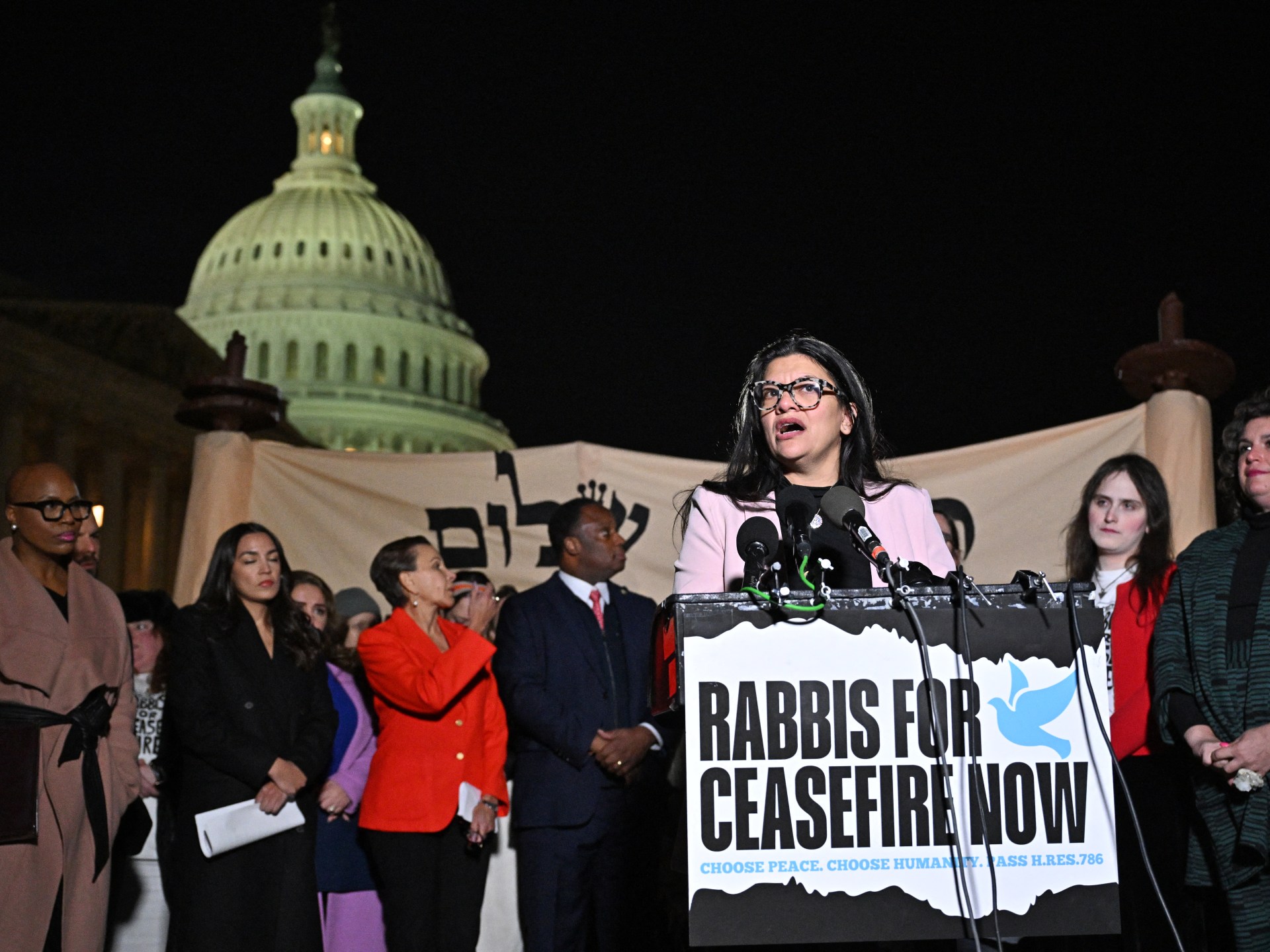A new poll says more than 60% US voters want ceasefire, while only 11% of lawmakers support an end to Israel’s war.
Support among members of the United States Congress for a ceasefire in the Israel-Gaza war is far lower than among voters.
Data for Progress, a progressive US think tank, said on Tuesday that 61 percent of likely US voters support calls for a permanent ceasefire and a de-escalation of violence in Israel’s war on the besieged Palestinian enclave, which has killed more than 16,000 people since October 7.
Citing the poll in a post on social media platform X, Democratic Congresswoman Rashida Tlaib questioned why so few members of the government were aligned with the public’s views on this, noting that only 11 percent of Congress has called for a ceasefire. A full 76 percent of Democrat voters support a ceasefire.
61% of Americans support a permanent ceasefire in Gaza.
76% of Democrats.
57% of Independents.
49% of Republicans.
But only… 11% of Congress has called for a ceasefire. https://t.co/Gzte03B3vK pic.twitter.com/kJRkFFNGUl
— Congresswoman Rashida Tlaib (@RepRashida) December 5, 2023
Last week, Tlaib – the only Palestinian-American member of Congress who was censured by the US House of Representatives on November 7 – hit out at the White House for calling the few dozen lawmakers who demanded a ceasefire early in the war “repugnant”.
The Data for Progress survey, which polled over 1,000 likely US voters in late November, said the majority of respondents were concerned about the rise in hate towards Jewish communities, Arabs and Muslims in the US since the start of the war.
On Tuesday, the US House passed a measure equating anti-Zionism with anti-Semitism, a move Palestinian rights advocates denounced as “dangerous”, warning that it aims to curb free speech and distract from the war.
‘Shift in stance’
When asked what the US government should prioritise in its foreign policy approach to the crisis, about half of the poll’s respondents mentioned diplomatic efforts, and some 30 percent mentioned humanitarian assistance.
“Fewer than 1 in 4 voters (24%) choose ‘sending additional military aid and weapons to Israel’ — and only 11% choose ‘sending US troops to assist Israeli forces in Gaza’ as a priority,” Data for Progress noted.
The US government provides billions in military support to Israel and has sent additional taxpayer money since the war began.
However, the Biden administration on Tuesday announced a move to impose visa restrictions on “extremist” Israeli settlers involved in undermining peace, security or stability in the occupied West Bank.
This represents a “shift in the stance” on the conflict, Youcef Bouandel, a professor of political science and international relations at Qatar University, told Al Jazeera. However, he added the move does not “go far enough”.
Ariel Gold, the executive director of the US-based Fellowship of Reconciliation, told Al Jazeera the policy was “virtue signalling” as many settlers hold dual citizenship and do not require a visa to enter the US.
Last month, a different poll by Gallup found that 45 percent of Americans disapproved of Israel’s military action in Gaza. It found that 63 percent of Democrats, 64 percent of people of mixed race, and 67 percent of young people aged 18-34 all opposed the war.
Only 32 percent of Americans approved of President Joe Biden’s handling of the Israel-Hamas situation, Gallup said.
Check out our Latest News and Follow us at Facebook
Original Source

